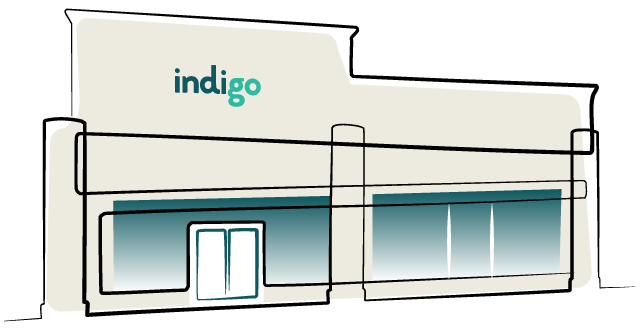Depression and anxiety are different conditions, but they commonly occur together. They also have similar treatments. Anxiety may occur as a symptom of clinical (major) depression. It's also common to have depression that's triggered by an anxiety disorder, such as generalized anxiety disorder, panic disorder, or separation anxiety disorder. Many people have a diagnosis of both an anxiety disorder and clinical depression.
Both are treatable medical conditions, and Indigo offers mental health screenings to help determine the right path of treatment. (Please note, Indigo does not offer counseling or psychotherapy treatments).


